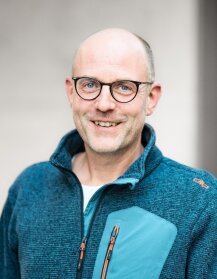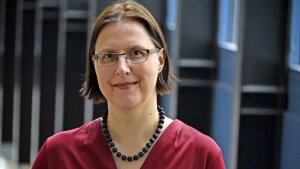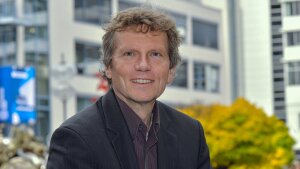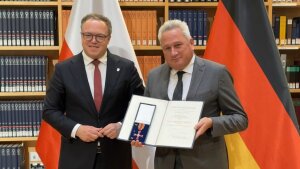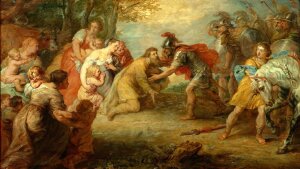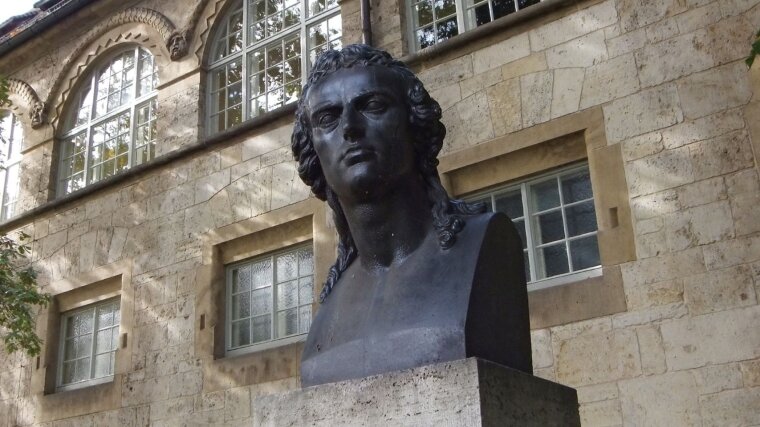
The LIBERTY profile regularly announces funding programmes to deepen and further develop research on the current thematic focuses, but also to open up and establish new topics and research areas. The funds provided by the LIBERTY profile are intended for the preparation of applications for third-party funding.
About the LIBERTY profile
The LIBERTY profile encompasses humanities-orientated research in areas such as the Enlightenment, classicism, romanticism, idealism and Eastern and South Eastern Europe. It likewise includes contemporary history and cultures of history as well as social, behavioural economical and jurisprudential research into the nature of social change and the consequences of social change for individuals and societies.
Thematic focuses of the LIBERTY profile
Enlightenment and Romanticism
Jena and Weimar form a hub of "German Classicism" from the period around 1800, a movement which combined the Enlightenment and Romanticism to form the foundations for our contemporary culture. The Jena-based Research Training Group "Modell Romantik" and the "Research Centre for European Romanticism" relate current issues and problems with this formation phase of modern society as part of interdisciplinary dialogue, and aim to make the classicist memorial sites in Germany into current forums of discussion for a historically-informed diagnosis of the present.
Contemporary History and Cultures of History
The self-enlightenment of democratic societies about their past is one of the fundamental prerequisites of democracy after experiences of war, dictatorship and genocide. The Jena Center 20th Century History and the Imre Kertész Kolleg Jena, in close cooperation with the Buchenwald and Mittelbau-Dora Memorials Foundation, are among the most outstanding locations for research into European contemporary history and its historical cultural aspects.
Social Change
Social change is not only studied in Jena because such study is traditional. More importantly, knowledge and experience-led accomodation with social change is a substantial task facing all modern societies in the future. A research priority has therefore been developed in Jena, inspired by ideas from the past dealing with social, economic and political change, to investigate the problems, dynamics and ways of overcoming social change. This focus of research is marked by attention to patterns of problem-solving by individuals and society, demography and social transformation, to change and innovation in technology, and to changes in social economic , and legal institutions. The research focus also encompasses the forms and structure of governance, the make-up of dynamics of the knowledge, environmental and financial, as well as individual and group behaviour in the fate of insecurity.
Structure-providing centres
- Aleksander Brückner Center for Polish StudiesExternal link
- Ethics Center de
- Forschungsstelle Europäische Romantik de
- Forum for the Study of the Global ConditionExternal linkde
- Imre Kertész Kolleg. Eastern Europe in the Twentieth Century: Comparative Historical ExperienceExternal link
- Jena Center for Reconciliation Studies (JCRS)
- Jena Schumpeter Center for the Research on Socio-Economic Change (JSEC)
- KomRex - Zentrum für Rechtsextremismusforschung, Demokratiebildung und gesellschaftliche Integration
- Research Center for Religion and Education (RCRE)
Joint research projects (selection)
- BMBF WeCaRe - Gesundheitsversorgung in strukturschwachen RegionenExternal linkde
- Cluster of Excellence (EXC 3078) Imaginamics: Practices and Dynamics of Social Imagining
- CRC/TRR 294 Structural Change of PropertyExternal link
- DFG Reinhart Koselleck-Projekt: Wie umgehen mit Rassismus, Sexismus und Antisemitismus in Werken der Klassischen Deutschen Philosophie? (Selbst-)kritische Philosophiegeschichte als Projekt einer „Public Philosophy“External linkde
- International Max Planck Research School for the Science of Human HistoryExternal link
- RTG 2792 Autonomy of Heteronomous Texts in Antiquity and the Middle AgesExternal link
Contact
The coordination committeepdf, 80 kb · de of the LIBERTY profile serves as the reporting and strategic element. Spokespersons of the coordination committee are Prof. Dr. Ulrike Kaiser and Prof. Dr. Sebastian Henn.
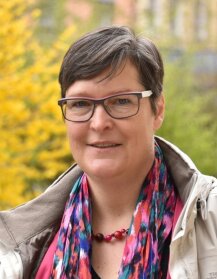
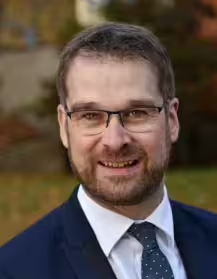
fällt aus am 12.11.2019
Coordination
